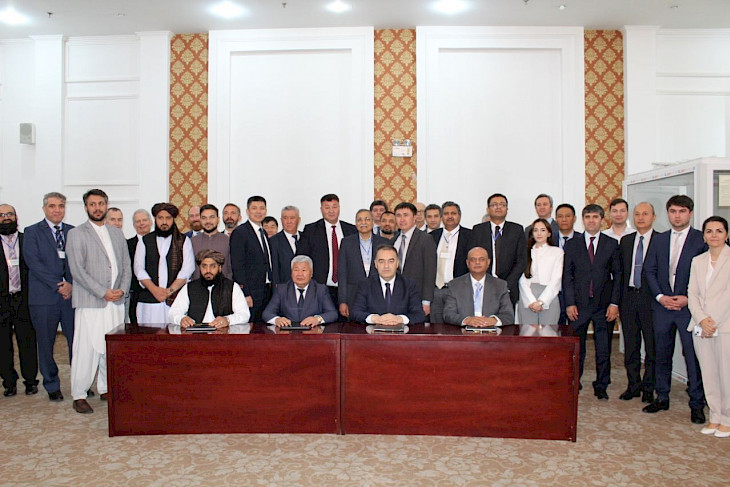On May 15, the Intergovernmental Council on the Central Asia–South Asia Electricity Transmission and Trade Project (CASA-1000) officially adopted the Technical Code, Asia-Plus reports.
The document is considered one of the project’s key agreements. Its implementation is seen as essential for the parallel integration of the power grids of Central and South Asian countries.
The meeting was attended by:
– Daler Juma, Minister of Energy of Tajikistan,
– Taalaibek Ibraev, Minister of Energy of Kyrgyzstan,
– Awais Leghari, Federal Minister for Energy of Pakistan (via videoconference),
– Abdulbari Umar, CEO of Da Afghanistan Breshna Sherkat (DABS),
as well as representatives of international financial institutions and development partners.
Daler Juma noted that construction work under the CASA-1000 project has been fully completed in Tajikistan and Kyrgyzstan. Finalization in Pakistan is expected later this year, while progress in Afghanistan is anticipated soon.
“On March 31, 2025, the 500 kV Datka–Sughd transmission line was energized. We can already use this infrastructure for the benefit of our nations. The significant progress achieved across all four countries reflects not only national efforts but also the sustained support and cooperation of international financial institutions and development partners,” the minister emphasized.
At the conclusion of the meeting, the parties signed a Protocol of the Joint Working Groups, a Joint Statement, and a Council Resolution.
On May 16, delegations are scheduled to visit the 1300 MW converter substation in the Sangtuda area, as well as the Nurek Hydropower Plant.
That same day, Daler Juma held bilateral talks with DABS CEO Abdulbari Umar. The two discussed ways to expand cooperation in electricity transmission and address issues of regional stability and energy security.
Umar expressed gratitude for the invitation and hospitality, reaffirming Afghanistan’s commitment to building strong economic and political ties with neighboring countries. He also briefed the Tajik side on Afghanistan’s energy capabilities.
The CASA-1000 project is designed to export surplus hydropower from Kyrgyzstan and Tajikistan to Afghanistan and Pakistan. The total cost of the initiative is estimated at $1.16 billion. It includes the construction of 1,387 km of transmission lines and two converter substations.
According to Tajikistan’s Ministry of Energy, all construction work on the territories of Tajikistan and Kyrgyzstan has been completed, and Pakistan’s section is expected to be finalized by the end of 2025.
Previously, it was reported that Afghanistan is expecting $100 million in financing from the World Bank to resume work on its portion of the project. Construction was halted in 2021 following the Taliban’s return to power.
CentralasianLIGHT.org
May 16, 2025

